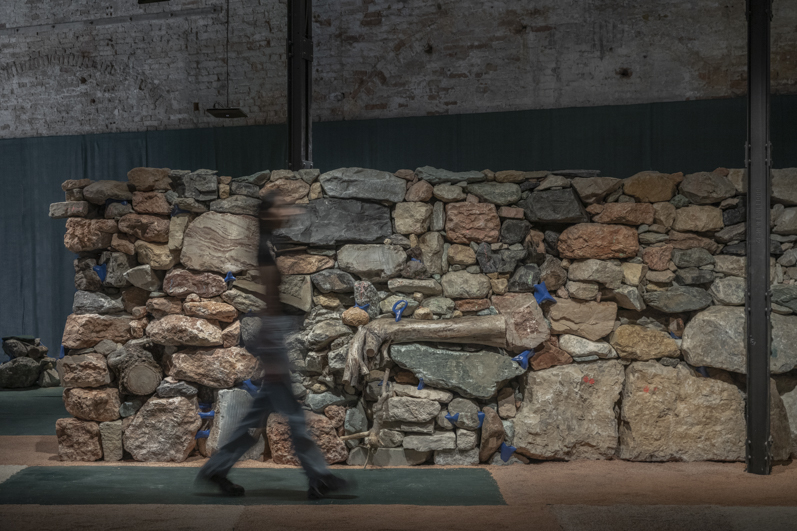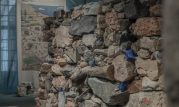2023
Aridly Abundant
The 18th International Architecture Exhibition


Aridly Abundant is curated by Faysal Tabbarah, Associate Dean and Associate Professor of Architecture at the American University of Sharjah and co-founder of Sharjah-based experimental architecture and design studio Architecture + Other Things (A+OT) and is the National Pavilion UAE’s fifth participation in the International Architecture Exhibition.
Aridly Abundant investigates what architectural possibilities can become possible when we reimagine arid landscapes as spaces of abundance. This is explored through the integration of land-based knowledge and contemporary technology within the arid landscapes of the UAE, with a specific focus on the desert plateau, wadis, and coastal plains in and around Al Hajar Mountains.
For the 2023 exhibition, the National Pavilion UAE addresses the misconception that arid spaces are spaces of scarcity to highlight the thriving ecosystems that have always been present in the UAE and its surrounding areas, supported by land-based practices developed by inhabitants who understood and cherished the particularities of the land. The exhibition aims to bring back these practices to the forefront as climatic conditions exacerbate the challenges associated with aridity around the globe. These practices have successfully supported life in water-scarce environments and can be adapted to other contexts, relieving the strain on natural resources and slowing the degradation of land.
Aridly Abundant focuses on these land-based practices to highlight these techniques respond to the environmental conditions of aridity, proving to be a sustainable architectural condition. By examining the materials inherent to the region and the tactics (architectural methods inspired by land-based practices), Tabbarah provokes a discussion on a future built in (uncovering arid lands-based practices), with (rethinking extractive material practices), and for (recognizing aridity as a future global condition) aridity by maximizing the potential of natural resources.
Aridly Abundant transforms the pavilion into an environment that exhibits the ongoing spatial, material, and tactile qualities of aridly abundant landscapes. A series of stone assemblies are inserted into the space, acting as devices that exhibit the multitude of tactics of assembly that have been identified in Al Hajar such as dry-stacking, tethering, and blurring. Audio/visual vignettes by commissioned artist Reem Falaknaz allow one to experience the environment of Al Hajar. The drawing acts as the device that highlights the relationship between the stone assemblies in the exhibition space with Falaknaz’s audio/visual vignettes. In order to demonstrate that the tactics found in the UAE can be translated and employed in other contexts, the assembly methods have been applied to discarded stone fragments from quarries within the Veneto region. Infused with technologies such as 3D scanning and 3D printing that facilitate design and assembly, the stone devices suggest contemporary and alternative building systems that are rooted in their cultural and material environments.
Accompanying the exhibition, this year’s publication is conceived as a travelogue, will advocate a change in the way we look at aridity by exploring it as a concept; a dynamic condition which can be a state of mind, a practice, or a shared identity. The publication will be taking the seemingly arid landscapes of the UAE as a case study that allows us to declare aridity as a shared and common cultural space through diverse pieces – fiction and poetry, scientific essays, travel stories and photography. The book is co-edited by Faysal Tabbarah and Meitha Almazrooei.
The 18th International Architecture Exhibition, titled The Laboratory of the Future, curated by Lesley Lokko, will be held from 20 May – 26 November 2023 (pre-opening 18 and 19 May).